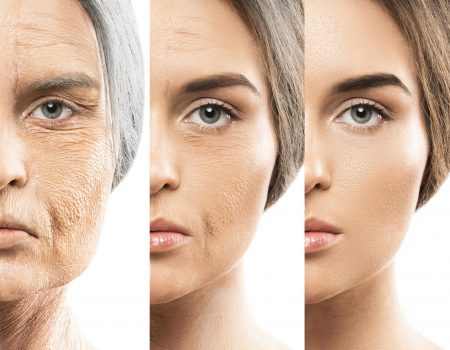Ageing affects the speed of information processing. Older people tend to be slower than younger people in processing sensory information. Most of this change occurs in the central nervous system where various mechanisms translate sensory input into responses. But changes also occur peripherally. Conduction velocities in sensory and motor nerves slow down with age. Changes in storage and retrieval of information occur for all age groups. Recall, the searching and retrieval of factual information from the brain storage worsens over time. But recognition, the matching of stored information with that in the environment changes very little over time. Encoding, the process of preparing information for memory, takes more time and effort. These changes relate to sensory barriers and create a disadvantage to initial processing.
Reverse Aging and Wellness
What is ‘Intelligent Aging’?

As your body ages, increasing amounts of your cells enter into a state of senescence. Senescent cells do not divide or support the tissues they are part of; instead, they emit a range of potentially harmful chemical signals that encourage nearby cells to enter the same senescent state. Senescent cells usually destroy themselves via a programmed process called apoptosis facilitated by the immune system; however, as the immune system weakens with age an increasing number of these senescent cells escape this process and build up.
By the time people reach old age, significant numbers of these senescent cells have accumulated in the body, causing inflammation and damage to surrounding cells and tissue. These senescent cells are one of the hallmarks of ageing and a key-process in the progression of ageing.
With our current knowledge of stem cells, it is technically feasible to delay ageing and improve both health and lifespan. Stem cells can play a crucial role in slowing down the ageing process. Stem cells, together with anti-ageing genes, can create a sophisticated shield, which can delay ageing.
There is not enough clinical data to state whether or not stem cells may be able to cure ageing. However, it may be possible to slow the ageing process by following the above considerations.
Stem Cells
Increased wear and tear of the body’s natural stem cells, increases cellular damage, and accelerates the natural process of ageing. Stem cells combined with anti-ageing genes can potentially absorb the process of cellular ageing. Introduction of “youthful” stem cells into the human body can rejuvenate existing cells and allow the body to age more gracefully & even reverse some effects of the ageing process.
Stem cell rejuvenation is a type of therapy used to combat the effects of the natural ageing process. A large number of youthful stem cells are injected into the patient via IV. These are intended to replace the existing “old” cells, allowing the body to work efficiently by healing itself and reducing inflammation.
Copyright © 2023 Tdox Asia. All Rights Reserved


